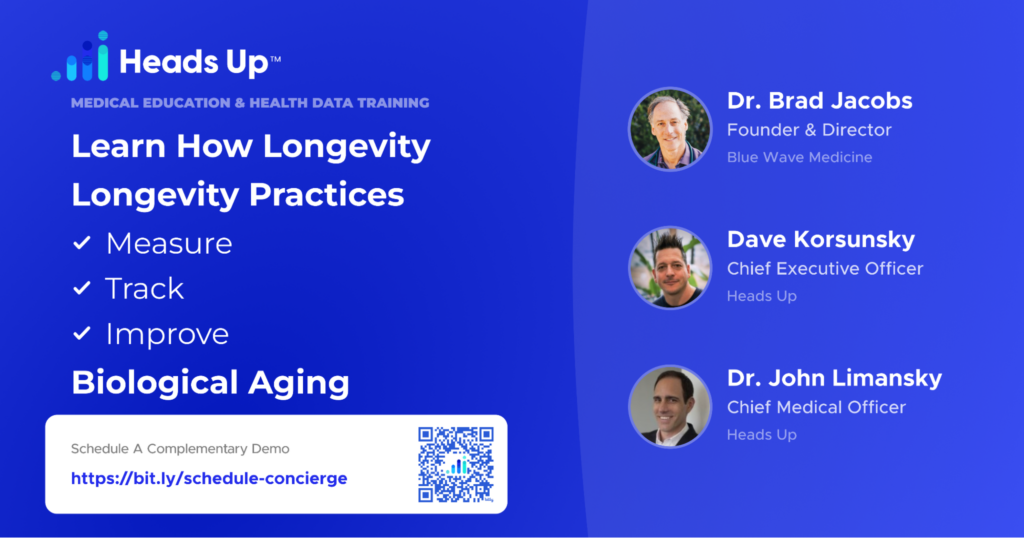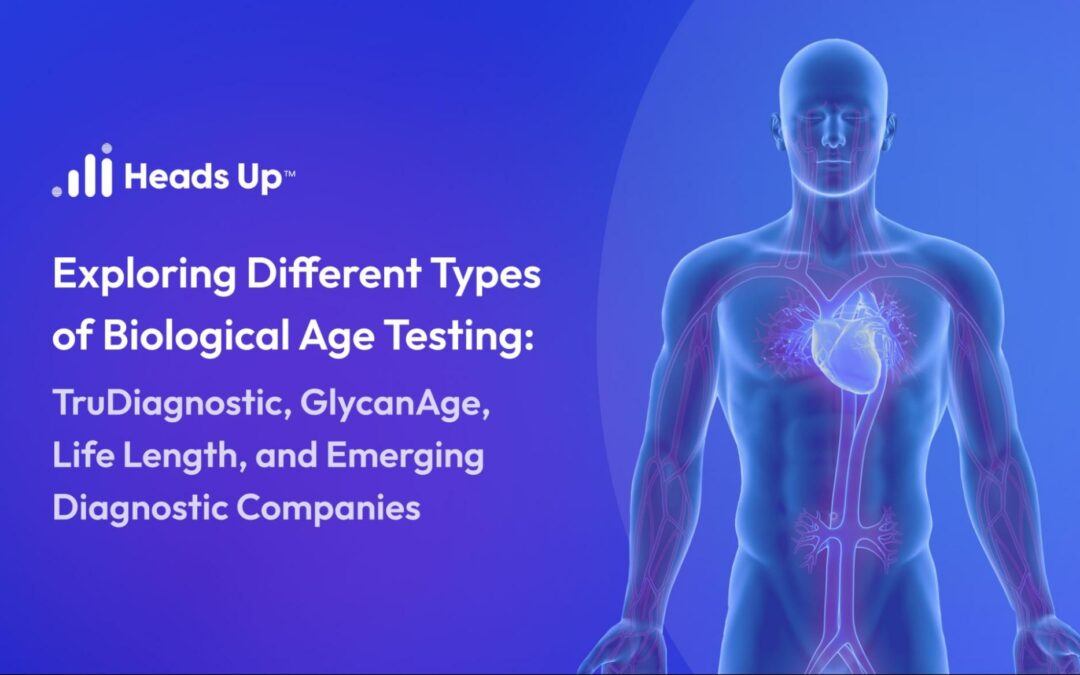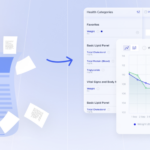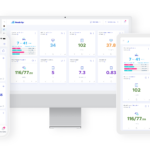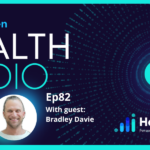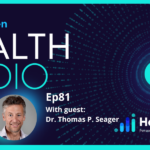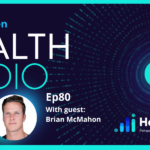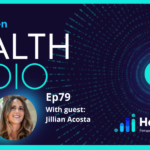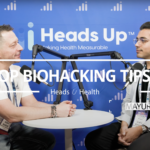Abstract: Biological Age Tests
Biological age testing has gained significant attention as a tool for assessing an individual’s physiological state and predicting health outcomes. Unlike chronological age, biological age provides a more accurate reflection of an individual’s health status, influenced by genetic, lifestyle, and environmental factors.
This article explores various types of biological age testing offered by leading companies like TruDiagnostic, GlycanAge, Life Length, and other emerging diagnostic labratories, highlighting their methodologies, applications, and implications for tracking biological age, health, and longevity.
Introduction to Biological Age Testing
Biological age is a measure of an individual’s functional and physiological health, often differing from chronological age, which simply reflects the passage of time since birth. Various biological age testing methods have been developed to quantify this measure, offering insights into aging processes and health risks. These tests typically assess biomarkers that correlate with aging, such as DNA methylation, glycan patterns, and telomere length.
Biological Age Testing: Key Concepts and Importance
What is Biological Age?
Biological age refers to the biological state of an individual’s body systems and tissues, influenced by genetics, lifestyle, and environmental exposures. It serves as a more accurate predictor of health and longevity than chronological age .
Importance of Biological Age Testing
Biological age testing provides valuable information on the aging process and helps identify areas for health improvement. It is used to:
- Assess Health Risks: Identify potential health issues related to aging.
- Monitor Longevity Interventions: Track the effectiveness of anti-aging treatments and lifestyle changes.
- Personalize Health Strategies: Tailor health and wellness plans to individual needs based on biological age .
Types of Biological Age Testing
1. DNA Methylation Testing
DNA methylation is an epigenetic modification that changes with age and is influenced by various factors such as diet, stress, and environmental exposures. Tests measuring DNA methylation provide an estimate of biological age by analyzing methylation patterns at specific sites in the genome.
TruDiagnostic
Methodology: TruDiagnostic uses a comprehensive DNA methylation analysis to calculate biological age. The test measures methylation patterns at over 850,000 CpG sites across the genome, providing a detailed assessment of epigenetic age .
Applications: This test is used to assess aging processes, evaluate the impact of lifestyle changes on biological age, and guide personalized health interventions .
Benefits: Provides a detailed and accurate measure of biological age, helping to identify areas for health optimization .
Limitations: The test requires a blood sample and may not reflect real-time changes due to its focus on epigenetic modifications over longer periods .
Epigenetic Clock Testing
Several companies offer DNA methylation-based biological age tests using various epigenetic clocks:
- Horvath Clock: Developed by Dr. Steve Horvath, it estimates biological age based on methylation levels at 353 CpG sites. It is widely used in research and clinical settings .
- PhenoAge: An advanced epigenetic clock that incorporates clinical biomarkers and DNA methylation data to provide a more comprehensive estimate of biological age and health risks .
2. Glycan Age Testing
Glycans are complex carbohydrates attached to proteins and lipids, influencing various biological processes. Changes in glycan patterns are associated with aging and can serve as biomarkers for biological age.
GlycanAge
Methodology: GlycanAge measures the glycosylation patterns of immunoglobulin G (IgG), which change predictably with age. The test analyzes specific glycan structures to estimate biological age and assess immune system health .
Applications: Used to monitor the impact of lifestyle changes on biological age, evaluate immune health, and guide personalized interventions .
Benefits: Provides insights into immune system aging and overall health, offering a non-invasive way to track biological age .
Limitations: The test focuses on glycan patterns, which may not fully capture all aspects of biological aging .
Emerging Glycan Tests
- Genos: Offers a range of glycan testing services that assess glycan profiles for insights into aging and disease risk. Their tests are used in research and clinical applications to study the effects of aging on glycan structures .
3. Telomere Length Testing
Telomeres are protective caps at the ends of chromosomes that shorten with each cell division. Telomere length is a well-established biomarker of aging, reflecting cellular aging and longevity.
Life Length
Methodology: Life Length measures telomere length using a proprietary technique called Telomere Analysis Technology (TAT). The test analyzes telomere length in various cell populations, providing a comprehensive view of biological age .
Applications: Used to assess cellular aging, monitor the effects of anti-aging interventions, and guide personalized health strategies .
Benefits: Provides a direct measure of cellular aging, helping to identify individuals at risk of age-related diseases .
Limitations: Telomere length is influenced by various factors, including genetics and lifestyle, which can complicate interpretation .
Other Telomere Testing Companies
- RepeatDx: Specializes in telomere length analysis using Flow-FISH technology, which provides detailed measurements of telomere length in specific cell populations .
- SpectraCell: Offers telomere length testing as part of their micronutrient and health assessment services, providing insights into biological aging and overall health .
4. Metabolomic and Proteomic Testing
Metabolomic and proteomic tests analyze the profiles of metabolites and proteins in the body, providing insights into metabolic and physiological changes associated with aging.
Emerging Diagnostic Companies
- Biomarker Labs: Offers metabolomic testing to assess biological age by analyzing metabolites related to aging processes, such as oxidative stress and inflammation .
- Proteomic Age: Provides proteomic testing services that measure protein levels and modifications to estimate biological age and assess health risks .
Applications: These tests are used to evaluate metabolic health, track the impact of dietary and lifestyle changes, and guide personalized interventions .
Benefits: Provide a comprehensive view of physiological changes associated with aging, helping to identify potential health risks and opportunities for intervention .
Limitations: The interpretation of metabolomic and proteomic data can be complex, requiring advanced analytical tools and expertise .
5. Composite Biological Age Tests
Composite tests combine multiple biomarkers to provide a more comprehensive assessment of biological age, reflecting the complex interactions between different aging processes.
Elysium Health
Methodology: Elysium Health’s Index test combines DNA methylation, telomere length, and other biomarkers to estimate biological age and assess overall health .
Applications: Used to monitor the impact of lifestyle changes on biological age, evaluate health risks, and guide personalized interventions .
Benefits: Provides a holistic view of biological age, incorporating multiple aspects of aging for a more accurate assessment .
Limitations: The complexity of composite tests can make interpretation challenging, requiring a nuanced understanding of the interactions between different biomarkers .
6. Emerging Technologies and Companies
Agewell Bio: Focuses on integrating multiple biomarkers, including epigenetic, proteomic, and metabolomic data, to provide a comprehensive assessment of biological age .
Tally Health: Offers a range of biological age testing services that combine advanced analytics and AI to provide personalized insights into aging and health .
Zymo Research: Provides epigenetic age testing services using advanced DNA methylation analysis to estimate biological age and guide health interventions .
Practical Applications and Implications for Health and Longevity
Personalizing Health Strategies
Biological age testing allows for personalized health strategies that address the specific needs and health risks of individuals. By understanding their biological age, individuals can take proactive steps to improve their health and reduce the risk of age-related diseases .
Monitoring Longevity Interventions
Regular biological age testing provides a valuable tool for monitoring the effectiveness of longevity interventions, such as dietary changes, exercise programs, and anti-aging therapies. By tracking changes in biological age over time, individuals can assess the impact of these interventions and make informed decisions about their health management .
Validating Health Outcomes
For healthcare providers and researchers, biological age testing offers a way to validate the outcomes of health interventions and treatments. By measuring changes in biological age, they can assess the effectiveness of different approaches and optimize their strategies for improving health and longevity .
Ethical and Practical Considerations
While biological age testing offers valuable insights, it is important to consider the ethical and practical implications of these tests. Issues such as data privacy, the potential for misuse of test results, and the need for informed consent should be carefully considered when using biological age testing in clinical and research settings .
Conclusion
Biological age testing provides a powerful tool for assessing health, monitoring aging processes, and guiding personalized interventions. Companies like TruDiagnostic, GlycanAge, Life Length, and emerging diagnostic firms offer a range of testing options that leverage advanced technologies to provide detailed insights into biological age.
By integrating these tests into health and longevity programs, individuals and healthcare providers can optimize their strategies for maintaining health and extending lifespan. As the field of biological age testing continues to evolve, it will play an increasingly important role in promoting health and longevity.
References:
- Horvath, S. (2013). DNA methylation age of human tissues and cell types. Genome Biology, 14(10), R115.
- Belsky, D. W., Caspi, A., Houts, R., Cohen, H. J., Corcoran, D. L., Danese, A., … & Moffitt, T. E. (2015). Quantification of biological aging in young adults. Proceedings of the National Academy of Sciences, 112(30), E4104
